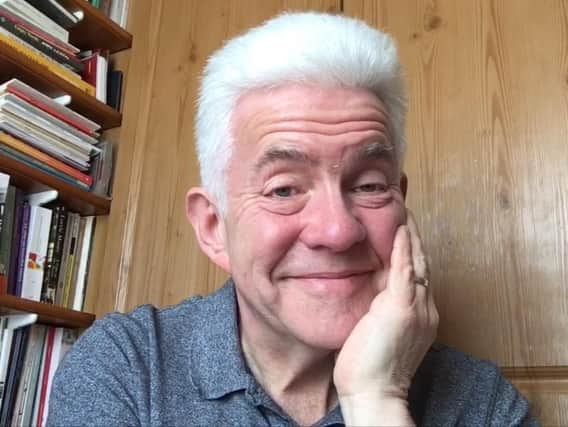Writing exercises can be rewarding for the old grey matter - Ian McMillan


I rewrite these columns a few times but I can tell you that I’d never rewritten a column as many times as I did that one, as I would have said without the letter E: “I did draft, draft, draft; all a bit of a shift.”
You’re right, missing out vital letters does give the language an odd kind of buzz and it doesn’t half make you think hard as a writer. I was very pleased with the column when it came out, though, except when someone pointed out that I’d left an E in. Darn it!
Advertisement
Hide AdAdvertisement
Hide AdThere’s something seductive about writing with this kind of restriction, though; the writing process becomes knotty and difficult and the brain has to cast its net wider and wider to stay within the parameters you’ve set yourself.
The kings and queens of these literary restrictions were the Oulipo writers in France in the 1960s; they did things like cutting sonnets up to create an infinite number of sonnets, they created palindromes and univocal writings, where the writing contains only one vowel.
On one level it’s ridiculous, but on another level Oulipo is a series of strenuous and rewarding exercises for the brain.
I’m jealous of the writer Georges Perec who wrote a 300-page novel without using the letter E, which makes my attempt at an E-less column seem a bit feeble or, as Perec might say, a bit fbl.
Advertisement
Hide AdAdvertisement
Hide AdYou don’t have to be that extreme to get something out of restricting your writing, though. You could decide to write the opening paragraph of a story where each sentence contained more words, starting with a one-word sentence. It might go like this: Rain. Pouring rain. Heavy pouring rain. Jim opened his eyes. He looked around the room. The rain poured through the ceiling.
In that paragraph, I progressed from a one-word sentence to a six-word sentence and the effect, it seems to me, was to give the action a kind of rhythm.
The shorter sentences at the start seemed to give the rain a kind of rhythm and then the longer the sentences got more things were allowed to happen.
What if I’d stretched it out, though? What if I’d started with that one-word sentence and then carried on until I finished up with a 1,000-word sentence? That would be interesting, although I wouldn’t want to try reading it aloud without the aid of an inhaler.
Advertisement
Hide AdAdvertisement
Hide AdHow about something univocal, with just one vowel? That’s a stretch but let’s give it a try: “Oh no. Ron, go. So, Ron: Not go? Go, Ron, Go! On Ron’s pond, gold fronds…”
Yes, it’s not easy but I might have to lie down for a minute and give my head a rest. And the other restriction, of course, is that this column is always 550 words long and I try to stick to that so I’m off right now!